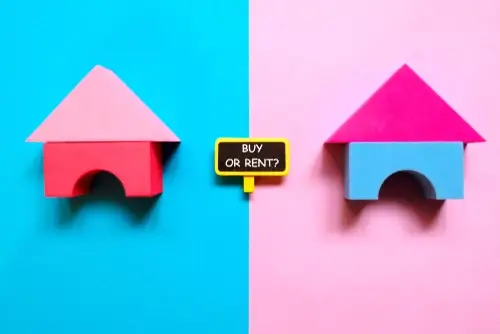
Embarking on the exciting adventure of relocating to a new city brings with it a cascade of decisions, and one of the most pivotal choices revolves around the fate of your current home. The question looms large: Should you rent it out or sell it? Each avenue presents a unique set of advantages and challenges, demanding thoughtful consideration of various factors before taking the plunge.
Venturing into Rental Territory
Opting to transform your current home into a rental property carries an allure, particularly if sentimental ties to the property persist, and a potential return is on the horizon. Converting your residence into a revenue-generating asset introduces financial stability, with the possibility of rent covering mortgage payments, making it an enticing prospect for those inclined towards long-term investments.
Before embracing the landlord hat, however, a thorough examination of the local rental landscape is imperative. Delve into research on prevailing rental rates, gauge the demand for housing, and prepare yourself for the intricacies of property management. Securing reliable tenants, addressing maintenance concerns, and navigating landlord-tenant regulations are critical aspects of this venture into the world of property leasing.
A notable advantage of opting for the rental route lies in the potential for property appreciation over time. If your home is nestled in an area undergoing growth, retaining ownership may translate to augmented value. Additionally, the continuous ownership allows you to retain a stake in the real estate market while reaping the benefits of a steady income stream.
Embracing the Sell-Now Strategy
Conversely, choosing to part ways with your current home before venturing into a new city offers a clean slate and immediate financial liquidity. The proceeds from the sale can seamlessly fund your new home's down payment, cover moving expenses, and even be redirected into investments in the real estate landscape of your chosen city.
The selling process boasts a simplicity that stands in stark contrast to the intricacies of managing a rental property. Once the sale concludes, liberation from the responsibilities and potential complications of being a landlord is achieved. This approach is particularly appealing for those yearning for a fresh start, unencumbered by the entanglements of property management.
However, it is essential to acknowledge that selling equates to bidding farewell to any potential future appreciation the property may undergo. If the market exhibits vigor and you envision a potential return, retaining ownership might prove a more strategic maneuver. It becomes crucial to weigh the allure of potential financial gains against the allure of the simplicity and immediacy that selling outright brings.
Making the Decision
The decision to rent out or sell your current home is far from a one-size-fits-all scenario and hinges on a medley of factors. These encompass your financial aspirations, prevailing market conditions, and personal predilections. It is imperative to invest the time needed to assess your current financial standing, long-term objectives, and comfort level with the responsibilities that come with the landlord role.
Consider seeking guidance from a seasoned real estate professional. Their insights into local market dynamics can prove invaluable, aiding in navigating the labyrinth of property values, rental market trends, and the overall viability of each option in light of your unique circumstances.
Ultimately, whether you opt to rent out or sell, the decision should harmonize with your goals and lifestyle. A move to a new city is a significant life juncture, and aligning your housing decisions with your overarching plans will facilitate a seamless transition and set the stage for a positive start in your new abode.

